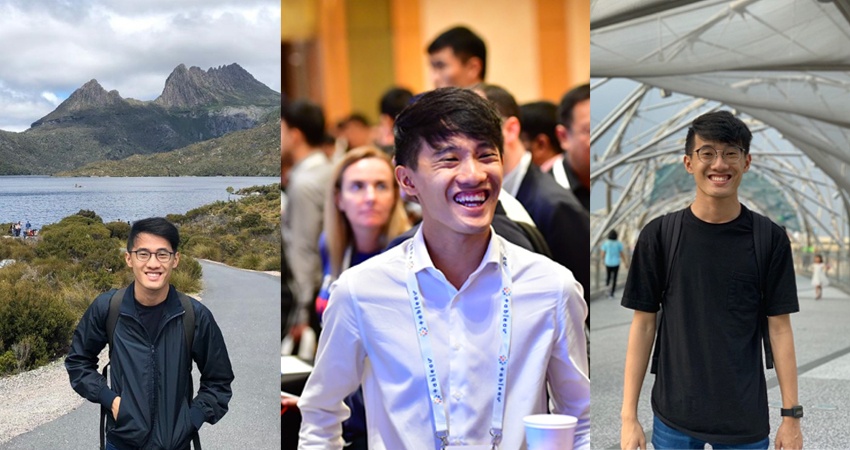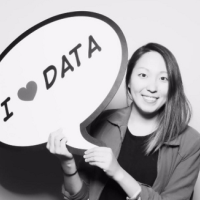Generation Data: Data competition opens doors for Singapore student
Last year, KJ Kim met Royce Ho through a Viz Competition called the Data Stories of Singapore 2018, where he won first prize with this visualization on Singapore’s Early Education Landscape. Almost six months after the competition, KJ caught up with Royce to hear about his Tableau story and how his exposure led him to new opportunities, like an internship with Sephora.

Editor’s Note: This piece is part of the Generation Data series on the Tableau blog. At Tableau, we feel that data skills are essential for the next generation of professionals and business leaders. The Tableau Academic Program seeks to arm students with the valuable analytical skills needed to think strategically and make an impact, both academically and professionally. If you are a student, download your free Tableau license today to start learning data skills.
As a part of our Generation Data series, we gather stories about students learning Tableau and analytical skills to gain exciting opportunities globally. My name is KJ Kim, and I lead the Academic Programs in the Asia Pacific.
Last year, I met Royce Ho through a Viz Competition we co-hosted with Info-communications Media Development Authority (IMDA) of Singapore, called the Data Stories of Singapore 2018, where he won first prize with this visualization on Singapore’s Early Education Landscape. Almost six months after the competition, I caught up with Royce to hear about his Tableau story and how his exposure led him to new opportunities, like an internship with Sephora.
KJ KIM (KK): Let’s start with the basics, can you introduce yourself to our readers?
ROYCE HO (RH): I’m a current student at Nanyang Technological University (NTU) in Singapore, and I’ve just completed my second year as a Business and Accounting Undergraduate, specializing in Business Analytics.
KK: Was Business Analytics something you always wanted to pursue?
RH: No, actually, when I first started university, I thought about pursuing Marketing. Focusing on anything related to IT was not something I had considered because anything technology-oriented felt complicated and foreign. My mind changed in the first year of university, because I had to take a compulsory IT module, and learned about how different technology contributes to the business. I especially took an interest in how organizations can enable data-driven decisions through technology.
Looking back, my internship with Airfrov, an e-commerce startup in Singapore, sparked my interest in using data for effective decision making. During the internship, I had the opportunity to uncover insights from transactional data using Excel as an extension of my original job scope. Although I can’t share specific use cases, this side project where I got to work with real data to produce insights via a visualization helped me to see data-driven decisions in action.
KK: Seems like you had quite a lot of exposure even before Tableau, so, when did Tableau first come into the picture for you?
RH: I first came across Tableau in the summer of 2018 when I was researching about data visualizations. After getting free access through Tableau for Students, I watched the whole series of Online Training Videos and played with the software for a while and stopped thinking that, “maybe I’ll use it one day.”
It wasn’t until I joined a Tableau workshop a few months later, conducted by the Business Analytics Club (BAC) at NTU, that I tried out Tableau more extensively and had the interest to take it further. This introductory workshop, held every semester by students for students, was instrumental in helping me to learn because sometimes online alone isn’t enough.
KK: This is always a curiosity of mine, what was your initial experience like when you tried Tableau?
RH: With the drag and drop user interface, I find Tableau to be very intuitive to use and easy to pick up. When you have a desired visualization in mind, it’s almost always possible to create it in Tableau, given the level of customizability and flexibility that Tableau provides by using features like parameters, calculated fields, etc.
I’ve also had the opportunity to walk a few friends through their initial experience with Tableau, and they all find it easy and rewarding to learn because it’s really fast to go from data to insights.
KK: If I have your timelines correct, you went from learning about Tableau and winning the Viz Competition within only a few months. How did you learn and practice to improve your data storytelling through Tableau?
RH: There’s plenty of resources available online for anyone to self-learn Tableau. Community Forums is the Tableau equivalent for Stack Overflow, and that was always my go-to whenever I had any questions. I also actively follow Tableau Public and other community projects like Makeover Monday, to learn from other people’s visualizations. The ever-popular ‘Steal Like an Artist’ by Austin Kleon had a strong influence on my approach.
Currently, books on data visualizations are something I’m spending my time on, and I think they would have helped me better prepare for the competition if I had read them then. ‘Storytelling with Data’ by Cole Nussbaumer Knaflic was very insightful for me.
KK: In the theme of your ‘Steal Like an Artist’ comment, were there any particular vizzes that inspired you?
RH: For the competition, I looked at the past winners’ works. The storytelling aspect of their vizzes inspired me, and that had a strong influence on how I structured my work. Fauzi Bin Bajuri’s Friendly Buildings in Singapore stood out to me because of how he structured his story. In terms of design, my choice of color inspiration came from Andras Szesztai’s Which Gender-Related Policies Should be Prioritized?
KK: I can see how their work has influenced your final visualization. I hope the competition was a fun experience for you. Also, we heard you scored an exciting internship after your win! Can you share more?
RH: Yes! After the competition, someone from Sephora reached out about a summer internship. I’m excited to join a leading global retailer as a Regional Business Intelligence Analyst intern this summer! After that, I will be joining Grab for a short term as an Analytics Architecture Intern as well.
The competition has opened more doors for me, and I would strongly encourage more students to develop visual analytics as a skill set because Tableau provides software licenses to students for free, and it’s easy to learn.
As you learn, I would start to build a portfolio of work through Tableau Public, instead of just listing Tableau on your resume. My competition entry was my first published work, and since then, I have made it a point to work on vizzes and improve my skills continuously.
We hope you enjoyed going on Royce Ho’s data journey with us, hearing about how data skills made him more competitive and created opportunities—like his upcoming internship with Sephora.
Join the students of Generation Data and download your free Tableau for Students license today to start learning data skills.
Histórias relacionadas
Subscribe to our blog
Receba em sua caixa de entrada as atualizações mais recentes do Tableau.








